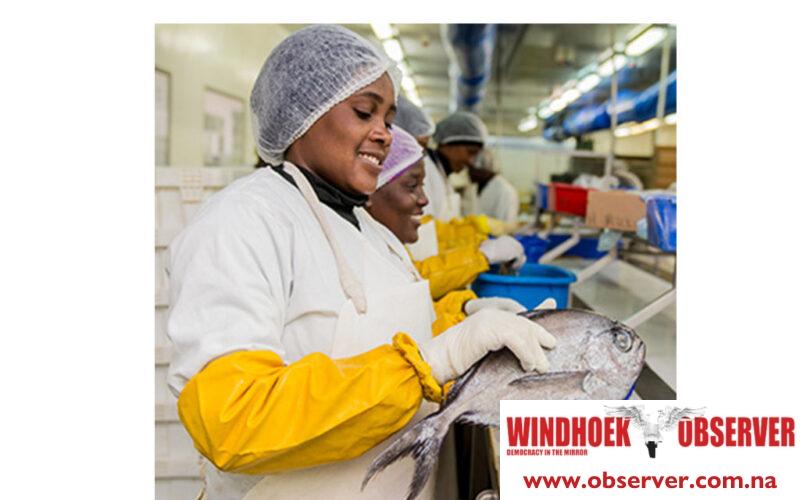Niël Terblanché
Namibia is embarking on a groundbreaking partnership with the World Economic Forum (WEF) to combat food loss and waste within its fisheries sector by harnessing the untapped potential of fish byproducts, including heads, internal organs, skins, and frames.
In a time of growing food insecurity and unemployment, Namibia’s fishing industry is teaming up with global partners to address these pressing challenges head-on.
The joint effort aims to significantly reduce seafood loss and waste, optimize the utilization of marine resources, and generate employment opportunities for coastal communities.
According to the United Nations Food and Agriculture Organization (FAO), more than one-third of seafood is lost or wasted worldwide, while over 92 percent of global fisheries are harvested at or above maximum sustainable yield levels.
The majority of these losses occur during sea operations and processing, with some byproducts being converted into fishmeal or fish oil.
The Namibia Ocean Cluster, a multi-stakeholder organization, will collaborate with the global Ocean Action Agenda, an initiative led by the World Economic Forum, to explore innovative ways of utilizing post-harvest seafood losses and maximizing the socio-economic benefits.
The fishing sector plays a pivotal role in Namibia’s economy, contributing 3.6 percent to the country’s Gross Domestic Product.
Currently, substantial quantities of byproducts from Namibian fisheries, including heads, internal organs, skins, and frames, are discarded at sea.
Research conducted in 2018 revealed that approximately 33 percent of seafood is lost due to the heading and eviscerating processes commonly used by industrial fisheries.
To address this issue, six leading companies within the hake fishery sector, including Embwinda Fishing, Hangana Seafood, Merlus Seafood Processors, NovaNam, Pereira Seafood Company, and Seawork, have joined forces to explore methods for capturing, landing, and processing these raw materials into value-added products.
This collaborative effort, known as the Namibia Ocean Cluster Working Group, has secured funding from the United Kingdom’s Blue Planet Fund and is set to launch in January 2024.
Its mission is to create a platform for the Namibian seafood sector and its stakeholders to collaborate in maximizing the utilization of all seafood post-harvest.
Thor Sigfusson, Founder and CEO of the Iceland Ocean Cluster, which has successfully increased the utilization of its cod fishery, praised Namibia’s commitment to minimizing seafood losses and maximizing socio-economic value.
Sigfusson emphasized the critical role of this movement in sustainable fisheries management, fostering good business practices, and promoting planet-appropriate food systems.
Namibia’s leadership in repurposing fish by-products is poised to have a positive impact not only regionally but also globally.
Namibia’s collaborative initiative may serve as a model for sustainable fisheries and resource utilization, contributing to the achievement of the United Nations’ Sustainable Development Goals.
Under the Namibia Ocean Cluster, modelled after Iceland’s Ocean Cluster initiative, the partnership seeks to connect entrepreneurs, businesses, and fishers, fostering shared expertise within Namibia’s marine industry.
The WEF described the Cluster’s mission as bringing together the Namibian seafood sector and allied stakeholders in a noncompetitive, collaborative forum dedicated to maximizing viable utilization of all seafood post-harvest, leading to new product development, research methods, markets, and economic models.
Several companies within Namibia’s hake fishery have already begun exploring ways to capture, land, and process post-harvest fish byproducts, adding value to each harvested fish.
The project’s objective is to extend this work nationwide and increase investment in startups specializing in reprocessing fish byproducts into high-value products, including pharmaceuticals, cosmetics, fishmeal, fish oil, and even human consumption.
This joint project brings together policymakers, business leaders, and civil society organizations to create a unified approach to maximize byproduct utilization, capturing both nutrition and economic value.
The reduction of seafood loss and waste holds not only environmental benefits but also significant social and economic advantages for Namibia’s seafood industry.




